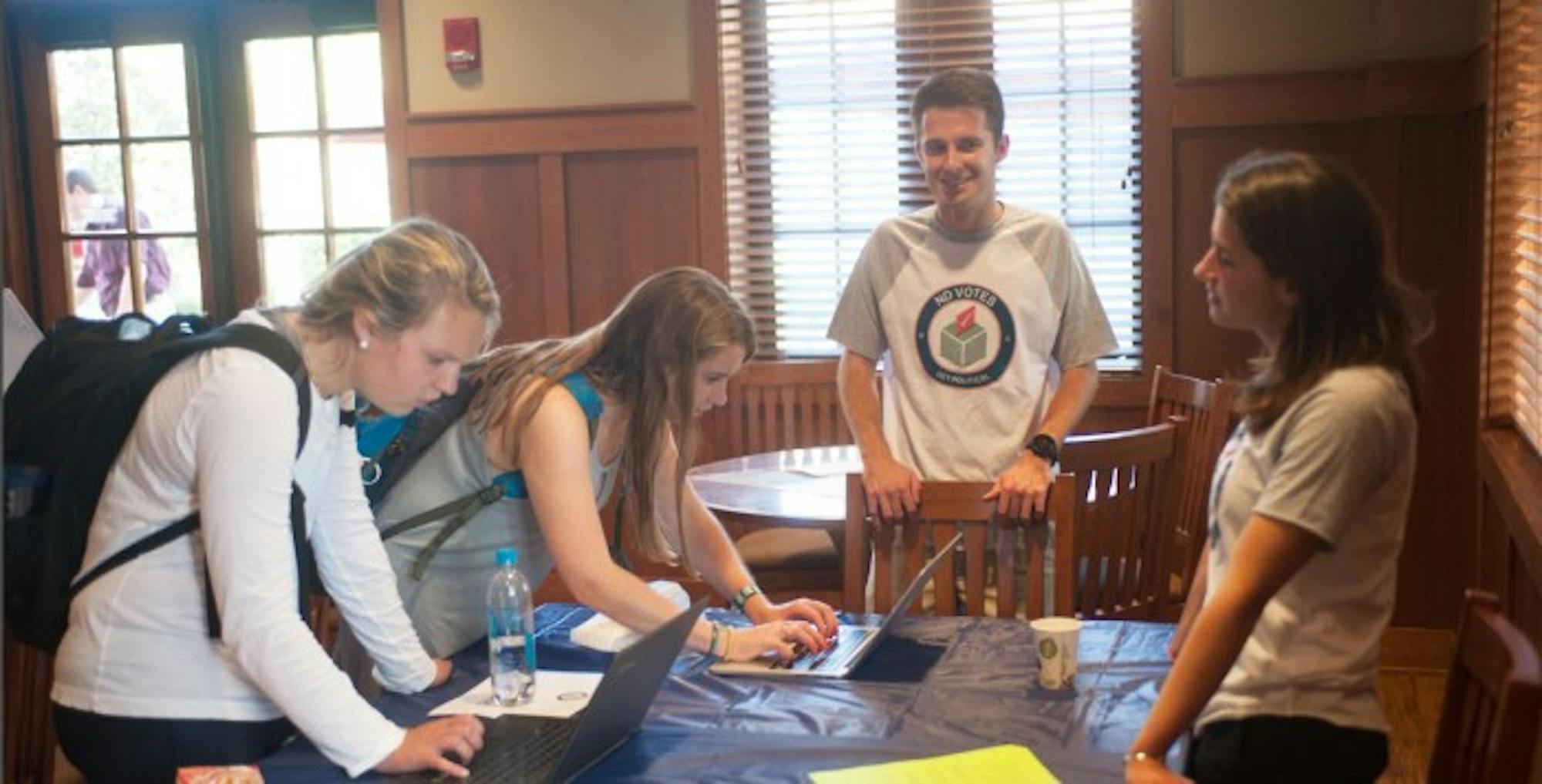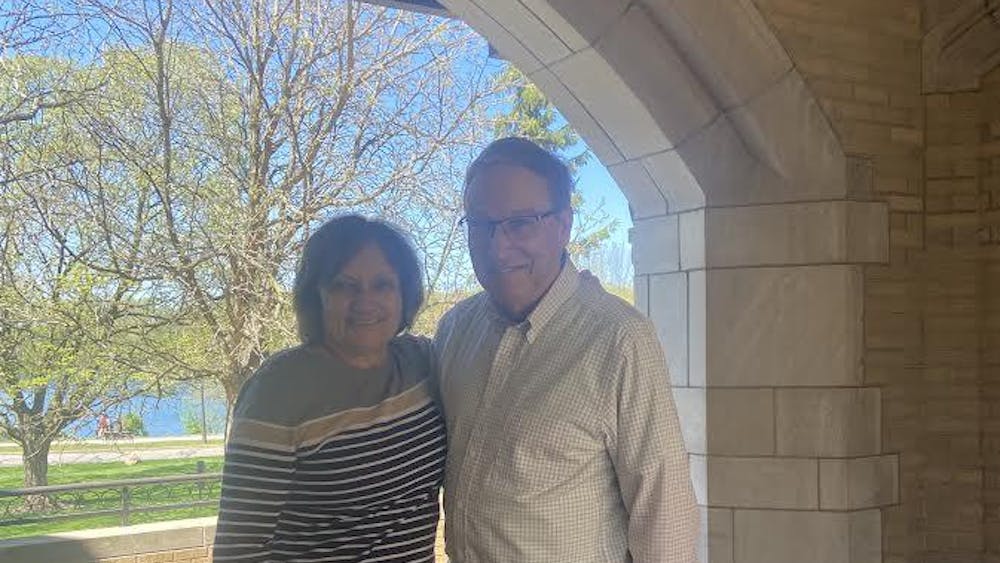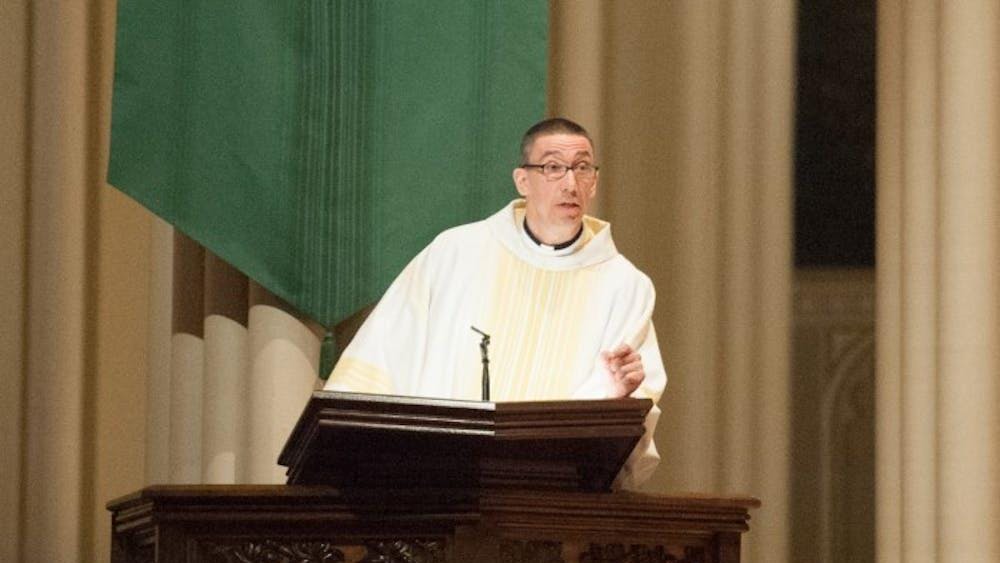NDVotes hosted “Popcorn, Pie and Politics” on Monday to kick off a 24-hour campaign registering students to vote on National Voter Registration Day on Wednesday. The event, held in Geddes Hall Coffee House, featured remarks by professors Geoffrey Layman and David Campbell.
“We started NDVotes in the three semesters ahead of the 2016 election, focusing on registration, education and mobilization,” Rosie McDowell, director of justice education at the Center for Social Concerns, said.
“There was such enthusiasm that we decided to continue the education aspect. We continued our ‘Pizza, Pop, and Politics’ series,” McDowell said, referencing the periodic events where professors speak about politics.
McDowell explained that NDVotes’ campaign for National Voter Registration Day is a competition to see which dorm can sign up the most residents for TurboVote, a program the helps people register to vote and keep them apprised of elections in their home region. The dorm that wins will receive a cash prize to spend on an event. NDVotes is a non-partisan organization.
The first hour of the event offered attendees the chance to check their voter registration and sign up for TurboVote. The second hour of the event featured speeches from Layman and Campbell about the importance of voting.
In his brief remarks, Layman described an experience from his life that underscored the point of casting a ballot.
“When politicians and parties are telling you to vote, they say, ‘one vote can decide an election,’” Layman said. “We always say, ‘no.’”
Layman talked about an incident in his hometown of Pulaski, Virginia that proved that one vote could swing the outcome of an election. When he was in graduate school, the courthouse in the town burned down.
“They had a ballot referendum on raising property taxes to rebuild,” Layman said. “I didn’t get an absentee ballot, and it lost by one vote. Elections can be decided by one vote.”
Layman jokingly said that his failure to get an absentee ballot deeply affected his father, who was inconvenienced by the fire at the courthouse because his law office was located directly across the street.
Campbell discussed the importance of voting in the context of the 2000 presidential election between George W. Bush and Al Gore, using an actual polling booth from that election as an example of his point.
“On election night 2000, I went to a viewing party to watch the results come in. When I left at 2 a.m., we didn’t know who won. We didn’t know for a month because of chaos in Florida,” Campbell said.
Campbell said the causes for chaos, particularly in Palm Beach County, where the election ended up being decided. He cited the county’s use of a butterfly ballot, the layout of which made it easy for Gore voters to accidentally vote for Reform Party candidate Pat Buchanan. He also listed the number of electoral races present on the ballot and pointed out a sign on the polling booth indicating that there was a legal limit of five minutes for voting. Making this process all the more complicated was the nature by which ballots were cast: voters had to punch a hole in a piece of paper. Many holes, called “hanging chads,” were not punched fully, calling into question what counted as a vote and what didn’t. Campbell said the hanging chad problem was likely exacerbated by voters who were in a hurry or who realized they had made a mistake.
“It matters not only who votes, but how you vote,” Campbell said.
Campbell said that the aftermath of the 2000 election demonstrates the importance of recognizing the differences between potential leaders.
“Prior to election day in 2000, one of the dominant themes was that there was little difference between Bush and Gore,” Campbell said. “The morning after and for the next month, they didn’t look so different after all. It matters who’s in charge. In 2000, the nation had a wake up call.”












